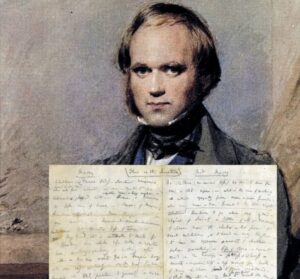
This was the question Charles Darwin asked himself in 1838, at the age of 29. As a good naturalist, he compiled a list of advantages and disadvantages to help him decide.
Among the reasons in favour of marriage, he noted:
– Offspring (God willing).
– A loyal companion (and a friend in old age).
– Better than a dog, anyway.
– Someone to look after the house.
Among the reasons against, he wrote:
• No freedom to move about as I please.
– No obligation to visit relatives.
– Costs and worries related to children.
– Excess weight and indolence.
– Less money for books, etc.
One of his greatest worries was having to give up his interests: “How could I pursue my passions if I were forced to walk every day with my wife? Poor me! I could never study French, or visit Europe, or go to America, or ride in a hot air balloon, or take a solitary excursion to Wales. I would be a slave, worse than a nerd.”
In the end, however, he decided that marriage was the best choice, because “one cannot lead a solitary existence in a frail, affectionless, cold, and childless old age, watching one’s face begin to wrinkle.”
A few months later, he married his cousin Emma Wedgwood, and they had ten children.





